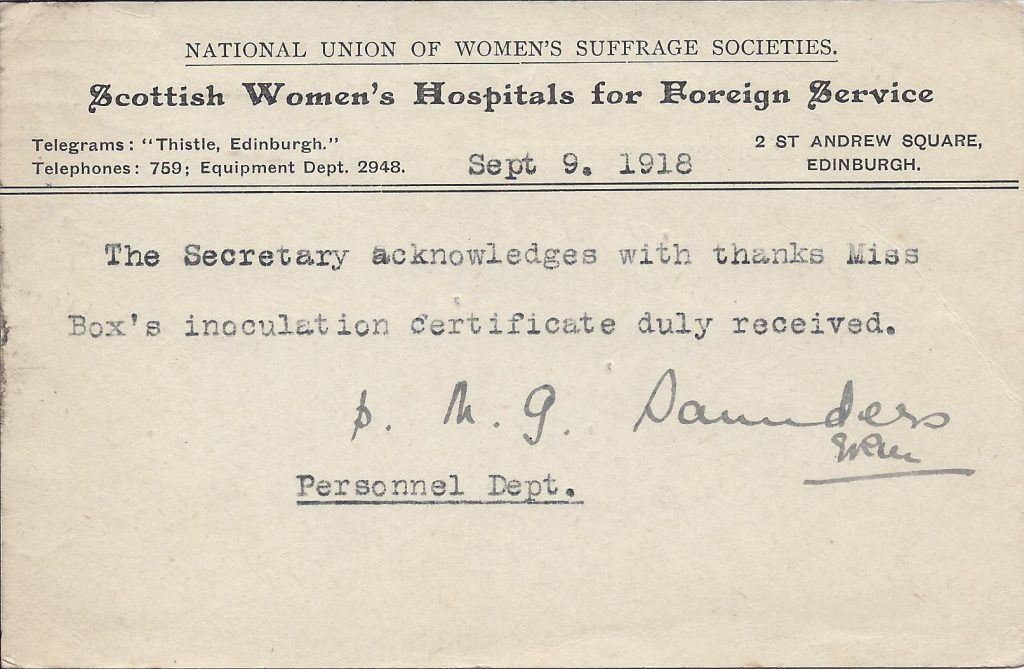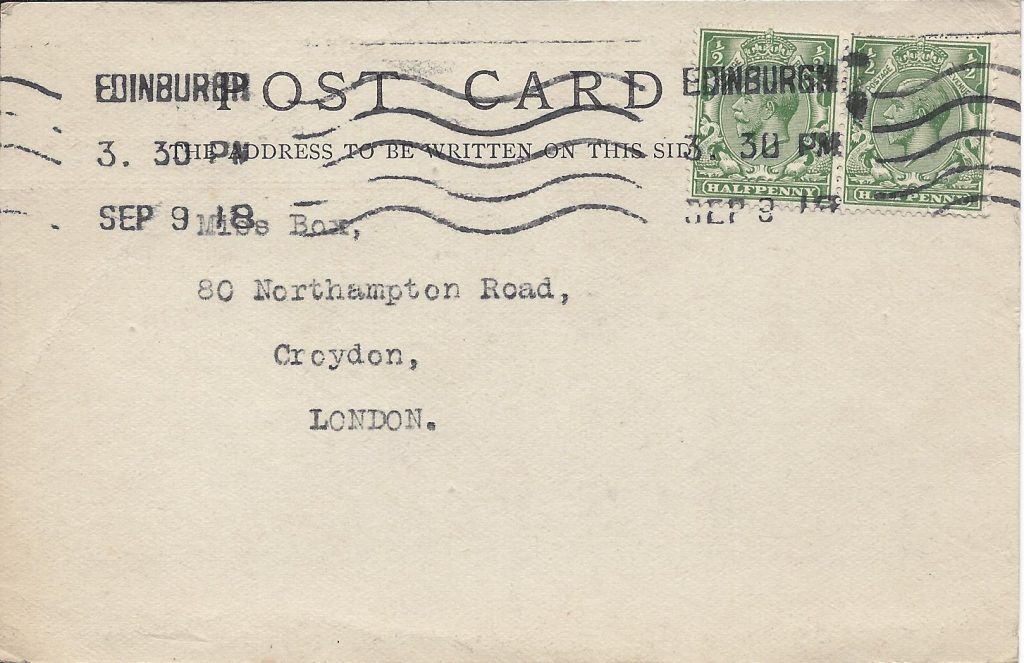On Saturday I, along with many others, went to London to campaign for a People’s Vote on the Brexit deal. The whole Brexit issue is contentious and I feel it is important for politicians to know that they are being scrutinised. This is particularly since the right to vote is, in historical terms, quite a recent and precious thing.
A little over a hundred years ago my Great Aunt Margaret was preparing to travel, as a nurse, to Serbia – where the final acts of the First World War were still ongoing. The overview of her letters can be found here, and an early postcard from 9th September 1918 shows a confirmation of receipt of her her inoculation certificate (although against what is not specified).
The postcard is sent from the Scottish Women’s Hospitals for Foreign Service, but in a voting context the interesting part is the top heading of the postcard, which shows that this was part of the National Union of Women’s Suffrage Societies. (There is much information about these in the linked Wikipedia articles). Margaret Box appears in the List of SWH names.
Even after the 1918 Representation of the People Act, Margaret would not have had a vote, as she was only 27, and the franchise only extended to women who were over 30, and even then only if they were registered property owners.
Inoculations, Voting and Marching
I tend to think of some things in terms of Information, so from that viewpoint an Inoculation is a signal, being sent to your body that says ‘Watch out for stuff like this’. Signaling in your body is very important to keep you alive and well, and people where that signaling system breaks down do not usually survive long.
In the same way the flow of information, in both directions, between the people and politicians is essential for a healthy democracy. If – as they claim, and as I believe the majority of politicians do – Government exists to carry out the will of the people, then sending signals, by voting, referendums, writing letters, sending petitions and sometimes, by marching is important. Information should flow in the other direction also, and that information should be honest and trustworthy.
Sending distorted information to the public, as an untrustworthy signal, to invoke a particular response, will be exposed by the eye of history (or sometimes earlier by investigative journalists), but breakdown in this signaling process is as bad for the body politic as Leprosy (with its damage to the ability to feel pain) is for the human body.


Very true words John. I’m sure Margaret would have been marching on Saturday!